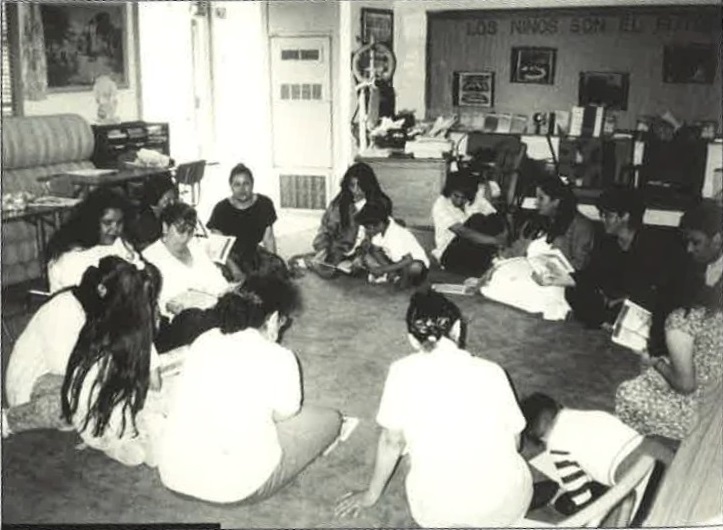
In 1992, California Humanities responded to the civil unrest sparked by the acquittals of the policemen involved in the Rodney King beating by bringing an award-winning intergenerational family literacy program to some of the low-income communities in Los Angeles most affected by the uprising. Motheread, a national program originally developed by the North Carolina Humanities Council, supported families by enabling mothers (parents) and children to read and talk about themes in children’s literature, strengthening family ties, promoting good communication skills, and providing a lifelong habit of reading.
“It was an unusual role for California Humanities to play,” recalls Karen Mack, the first Motheread Project Coordinator, referring to the series of innovative partnerships with social services agencies used to deliver the program. In the initial pilot, California Humanities provided the curriculum and resources (books, trainings, ongoing support) to its partner El Nido Public Services, which had established deep relationships in the community over its work with local families for several decades and provided an eager and receptive clientele for the program. For Mack, “This program provided an answer to the question of how we can bring the humanities into the lives of everyday people.”
The program continued to grow over a ten-year period, in collaboration with social service agencies throughout Southern California and with the support of regional funders. Project Manager Debra Coleman, who oversaw its expansion over the next seven years, felt the program opened the door to literacy for both children and parents. She describes literacy as a room with several doors “that can be entered through reading, writing, speaking, or listening; the goal is to find the doorway in because it is when you are in that room that you can have conversations that are really thinking and solving.”

